“Love is patient, love is kind. It does not envy, it does not boast, it is not proud. It is not rude, it is not self-seeking, it is not easily angered, it keeps no record of wrongs. Love does not delight in evil but rejoices with the truth. It always protects, always trusts, always hopes, always perseveres. Love never fails.” (1 Corinthians 13:4-8)
Love
There are two primary Greek words that are translated as “love” in the English New Testament of the Bible: agapē and philĕō. Agapē is commonly defined by Christian as “unconditional love.” It is interesting to note that agapē is also translated as charity in 1 Corinthians 13 in the King James Version of the Bible. This expresses agapē’s willingness to give without expecting anything in return. Although just about everybody of every religious belief would agree that agapē style love is something to strive for; Christians alone realize that it can only be fulfilled to its fullest extent with God’s power working in our lives.
Philĕō is badly underrated by most Christians to the point of receiving a bad rap. It is what we feel towards those who are close to us. This would include both family and friends. A more technical definition would be “to be a friend (fond of [an individual or an object]), ie. Having affection for (denoting personal attachment, as a matter of sentiment or feeling…”1 Most Christians seem look at the prominent role that agapē plays through out the New Testament and conclude that philĕō is a second rate expression of love. After all, philĕō is an emotion and us Christians are not suppose to be guided by our emotions. But the Bible tells us that God feels philĕō for both His Son and for us.2 It also tells us that we philĕō God’s Son and that we should feel philĕō for each other.3 It should also be realized that the biggest reason that agapē is given some much prominence is because as I said earlier, it goes entirely against human nature. Philĕō on the other hand is even demonstrated by people who are in the world. This is therefore the conclusion that I have come to:
Although feeling and emotions may not be strong enough to sustain our relationships in the long term, they do give meaning to them. They motivate us in to action. It is the philĕō that I have for my family and friends that make me want to do acts of agapē. The hardest part about my loving and forgiving my enemies who I hardly know is the fact that I have no real incentive to good out of my way to make peace with them. Maybe it is someone at work or even church that I never see any other time. Or maybe a neighbor that I will only cross paths will by chance. But if it is someone who’s relationship that I value, I will loose sleep at night trying to figure out how to reconcile. I know that this is not a Biblical; but it is the way it is. Agapē may be how we save our relationship; but philĕō is why.
Tough Love
The most controversial aspect of love, from a Christian standpoint, is “tough love”. Many Christians not only refuse to believe that there is any Biblical support for such a concept, but that the entire concept its self goes entirely against scripture. They would have a strong case if it were not for the fact that their evidence is based on those who divorce much if not their entire recover program, including their understanding of “tough love”, from the Bible. Let me give you an example of a real life situation in which I advocated the use of Biblical tough love:
A lady was giving me a ride home from work one night. She told me about her moving to Phoenix in order to help out her little sitter after their mother had past away. This sister, who was in her late twenties, had been babied by their mother and had never grown up. Therefore this lady, a single parent of a seven year old, was going to take over where their mother had left off. She asked me, “Isn’t this what God would want me to do?” I asked her, “Do you believe that God wants her to grow up and be more responsible?” She replied, “Yes.” Then I ask, “Is what you are doing making it possible for her to not have to grow up?” One again she replied, “Yes.” Finally I ask her, “So is this what God what’s you to do?” See replied, “No.”
The problem that so many co-dependants have is that they hate to see people, especially their loved ones, suffer to the point that those who are irresponsible do not have to grow up. They cannot see that rescuing someone from the consequences of their own actions actually does them more harm then good. It is one thing to help someone who is struggling because of things that are beyond their control or from mistakes that they have made and have learned from and are trying to rebound from. It is another thing all together when they are suffering the repetitive consequences of their own repetitive actions, especially when these actions are blatant acts of sin.
Co-dependents are also entirely unaware of the games that irresponsible people play in order to get others to enable them. Let us take for example your typical alcoholic/drug addict. They go to their family members with a sob story about how hard up they are because of this, that and some other thing. They tell their family members that they just need a few dollars to get them by to their next paycheck so they can pay a bill or get some food. As soon as they get the money, they are off to the nearest liquor store or drug dealer. One family member after another will start seeing through their games over time and start cutting them off. As they start running out of enabling family members, they start going more and more to “friends” with their now sobbier story about how hard up they are because of this, that and some other thing. And to make matters worse, their own family does not care enough about them to help them out. They will find new enablers almost as fast as they lose the old ones.
So if they are spending almost all of their cash on drugs and alcohol, then where do they get food to eat? Having work with my churches food pantry, I can tell you from first had observation how the “career homeless”4 operates. I do not care what anyone else tells you, it is a fact that no adults go hungry in this country unless their too proud to ask for help or their motivation to take care of themselves have been wiped out by depression or hard drugs. With all of the food pantries and soup kitchen and the fact that panhandlers make more money per hour then many hard working citizens do, you do not have to worry about them going hungry. They know the system and they know how to use it the same way they use their family and “friends”. And when they do get hard up for cash, they will go to the day labor halls where they will give feeble work for feeble pay. Because they are not require to make any commitment to their employer beyond that day, they will go and work a day or two when ever they need money to by anything that can not get from the food pantries, soup kitchen and other social services. The number one idem on their list are drugs and alcohol. This is the reason that those who are professional construction workers refer to all day laborers as “rent-a-drunks”. I myself have worked day labor, so I know that everybody who does are true “rent-a-drunks;” but I also know for a fact that a notable percentage are.
So how does the Bible say that we should deal with those who choice to live in a pattern of redundant irresponsibility and sin? When Paul, in the above scripture reference instructed the church on how to deal with an immoral believer, he told them to, “...hand this man over to Satan, so that the sinful nature may be destroyed and his spirit saved on the day of the Lord.”5 He would later say, “…Hymenaeus and Alexander, whom I have handed over to Satan to be taught not to blaspheme.”6 Hand people over to Satan?! That seam kind of harsh to me! Unfortunately, that is what it takes to get though to some people. What is worse is that some people still will not learn even after such an ordeal. Do not get the idea that this in any way suggest that we should be praying curses over anyone. Handing them over to Satan simply means that we stop trying to shelter them from the consequences of their actions. A person who rejects the ways of God and follows Satan into a blatantly sinful life is on a path of destruction. We need to be praying for God’s intervention. But ultimately it will come down to them making decisions at various crossroads of live. At some point in time they will reach that final crossroad and be given that one final choice, we can only pray that it will be the right one. Some, such as the immoral believer in 1 Corinthians 5:1-5, do finally repent. It is believed by many, including myself, that he is the one the Paul refers to in 2 Corinthians 2: 3-11. Paul then instructs the church to:”…reaffirm your love for him...in order that Satan might not outwit us. For we are not unaware of his schemes.”
The concept of tough love is something that many co-dependents are too eager to embrace. Those who were doormats are more than happy to free themselves, while those who have always been controlling and manipulative find justification for doing what comes naturally. That is because most people in recovery are taught this concept absent of the guidance of the Bible.
The first time I tried to use what I called “tough love”, it was in order to get a friend to change into what I wanted her to be. The Holy Spirit convicted me by calling it “emotional blackmail.” I tried to use our friendship as leverage to get her to come out of her co-dependent denial. If she would not change then it would be unhealthy for me to remain friends with her. I tried justifying this attitude by believing that I was doing this for her own good; but the fact was that was doing it to get my own wants met. I had romantic intensions towards her and wanted her to take away my loneness. She was afraid of getting close to people so she tried to get her needs met be trying to meet everybody else’s needs. Yes, her behavior was defiantly dysfunctional; but my agenda for confronting her was just as bad.
A lot of what I have seen done in the name of “tough love” would best be described as blackmail. If our significant others does not straighten up and fly right, then they are going to suffer the consequences. After all, their significant others are the cause of most of their problems; and so they cannot fix their own problems until after their significant others change. This is a bogus notion that nearly every co-dependant embraces early on in their recovery. Some of them never give it up!
Some of the demands for change do not even involve unhealthy behaviors. Sometimes it is a matter of the person who is applying the “tough love” is just intolerant of the differences in others. They have a self-righteous, judgmental standard for what is and is not appropriate behavior that they expect everyone to conform to. This too is an unbiblical usage of tough love.
1 Strong's Bible Concordance, Greek Dictionary of the New Testament, ref. #5368
2 John 5:20, 16:27; Revelation 3:19
3 John 16:27; Romans 12:10; Titus 2:4, 3:4, 3:15, Hebrews 13:1; 1 Peter 1:22, 3:8; 2 Peter 1:9



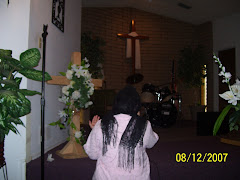

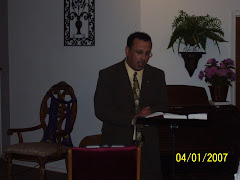




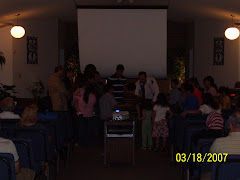
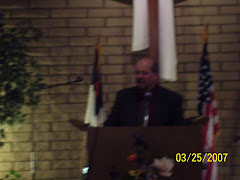
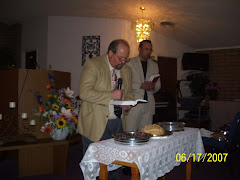
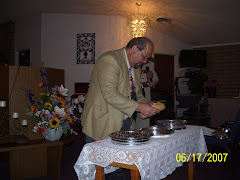
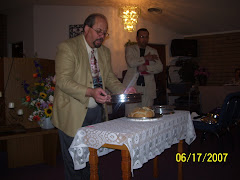
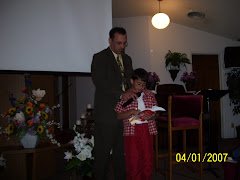
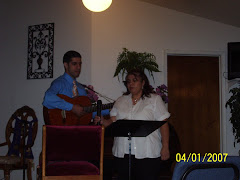


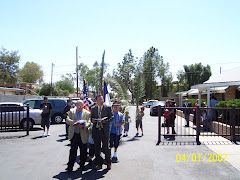
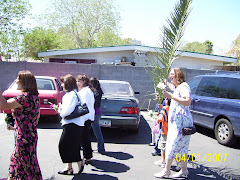




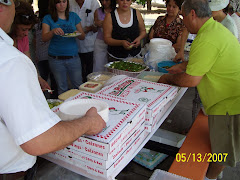

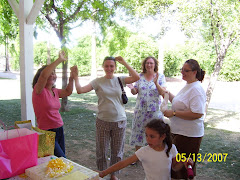




No comments:
Post a Comment